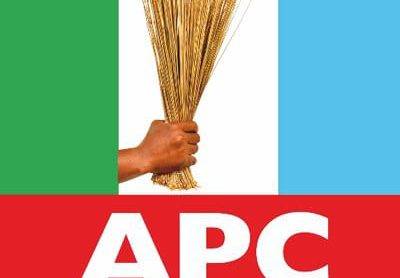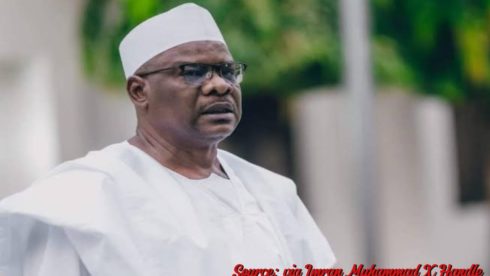In the unpredictable landscape of Nigerian politics, ideological purity often takes a backseat to pragmatism. History has shown that once-ardent adversaries can become allies when confronted with a mutual threat. As the 2027 general elections approach, this pattern is emerging vividly as opposition parties contemplate unconventional coalitions to challenge the ruling All Progressives Congress (APC). The impetus behind these potential alliances is the shared goal of unseating President Bola Tinubu, who marks his first year in office on May 29, 2027. The political climate is rife with speculation and intrigue as notable figures signal their willingness to bridge long-standing divides for a common cause.
One of the key proponents of opposition unity is former Vice President Alhaji Atiku Abubakar. Known for his political acumen, Abubakar has consistently advocated for a unified front against the APC. His calls have resonated with various factions within the opposition, including those he once stood against. This isn’t entirely new terrain for Abubakar, who was instrumental in forming the APC in 2014, leading to a historic defeat of the People’s Democratic Party (PDP). Now, he seems poised to reverse that script, potentially even ceding his position to a fellow opposition leader if it means a better shot at victory in 2027.
Obi’s Relentless Drive
Among the opposition figures, Peter Obi stands out for his relentless drive and grassroots mobilization efforts. Since losing the 2023 election, Obi has been actively engaging with communities across Nigeria, particularly in regions that have historically felt marginalized. His outreach includes notable gestures such as drilling boreholes and participating in community events, which have been interpreted as strategic moves to build alliances and garner widespread support. Critics, however, warn that his past divisive rhetoric could undermine these efforts.
Obi’s proactive engagement extends to high-level political maneuvers. He has been seen meeting with influential figures like Atiku Abubakar, former Senate President Bukola Saraki, and former Jigawa State Governor Sule Lamido. These meetings, while officially undisclosed in purpose, are widely believed to be centered on forming a coalition capable of challenging the APC’s dominance. Political economist Prof. Pat Utomi has hinted at a significant merger among opposition parties, underscoring the seriousness of these discussions.
The prospect of a merger has gained further credibility with Atiku Abubakar’s recent statements suggesting he might support Peter Obi as the opposition’s presidential candidate under the PDP banner. Such a development could fundamentally alter the political landscape, presenting a formidable challenge to the APC. As Nigeria edges closer to the 2027 elections, the evolving dynamics among opposition parties will be crucial to watch, with potential alliances holding the key to disrupting the status quo.
A Beacon of Hope: Prof. Utomi’s Vision for a Values-Driven Movement
Prof. Pat Utomi, a renowned political figure, has unveiled a groundbreaking vision for Nigeria’s political future—one that transcends traditional party politics. Utomi’s proposal centers on creating a movement focused on values that foster human progress rather than perpetuating the divisions typically exacerbated by ethnicity, religion, and partisan interests. According to Utomi, the movement aims to establish a platform for development with clear ideologies and goals that the public can hold accountable.
“My first point of call is to create this new tribe, which is not a political party, but rather a movement focused on values that shape human progress,” said Prof. Utomi. He argues that such an approach will not only unify the nation but also drive substantial progress. However, the feasibility of this vision is met with skepticism by some analysts, who point to Nigeria’s history of political parties that have promised much but delivered little. The challenges of launching a successful new political entity in a landscape marred by corruption and inefficiency cannot be underestimated.
Learning from the APC’s Strategy
The merger that led to the formation of the All Progressives Congress (APC) in 2014 is often cited as a successful model of unification in Nigerian politics. This merger, which brought together the defunct Action Congress of Nigeria (ACN), Congress for Progressive Change (CPC), and All Nigeria Peoples Party (ANPP), was instrumental in breaking the long-standing dominance of the People’s Democratic Party (PDP). The APC’s success in 2015 was largely attributed to its ability to unite diverse groups and present a cohesive front to the electorate.
Prof. Utomi’s vision, while ambitious, draws lessons from this historical precedent. Observers note that an open, transparent, and nationally conscious movement could potentially challenge the APC’s dominance in future elections. However, analysts caution that replicating the APC’s success requires more than just a merger; it demands genuine unity and a shared commitment to the movement’s values. Without the involvement of influential politicians like Alhaji Atiku Abubakar, Peter Obi, Senator Bukola Saraki, and Sule Lamido, the movement may struggle to gain the traction needed to effect significant change.
Implications and Challenges of a New Political Era
Should Prof. Utomi’s vision come to fruition, the implications for Nigeria’s political landscape would be profound. A successful merger of values-driven entities could create a formidable opposition capable of challenging the APC’s hold on power. This would provide a much-needed alternative for politicians and citizens disillusioned with the current political order, potentially revitalizing Nigeria’s democratic process.
However, the path to such a transformation is fraught with challenges. Reconciling the diverse interests and ideologies of various groups within the movement will be no small feat. Moreover, the new entity will need to navigate the complex realities of Nigerian politics, where ethnicity, religion, and regionalism play pivotal roles. Striking a balance among these competing interests while maintaining a united front will be crucial for the movement’s success.
On its part, the APC is not complacent. The ruling party is actively working to consolidate its gains from the 2023 election and rectify past mistakes to maintain its dominance. If the APC can deliver on its campaign promises, it will pose a significant challenge to any new political alliances or movements. As Nigeria’s political dynamics continue to evolve, the stage is set for a potentially transformative period leading up to the 2027 general elections. The emergence of a two-party system might enhance the unity and cohesiveness of the nation, providing a more stable political environment. As events unfold, all eyes will be on how these political forces realign and reshape the future of Nigeria
Table of Contents
Discover more from OGM News NG
Subscribe to get the latest posts sent to your email.













